00:46
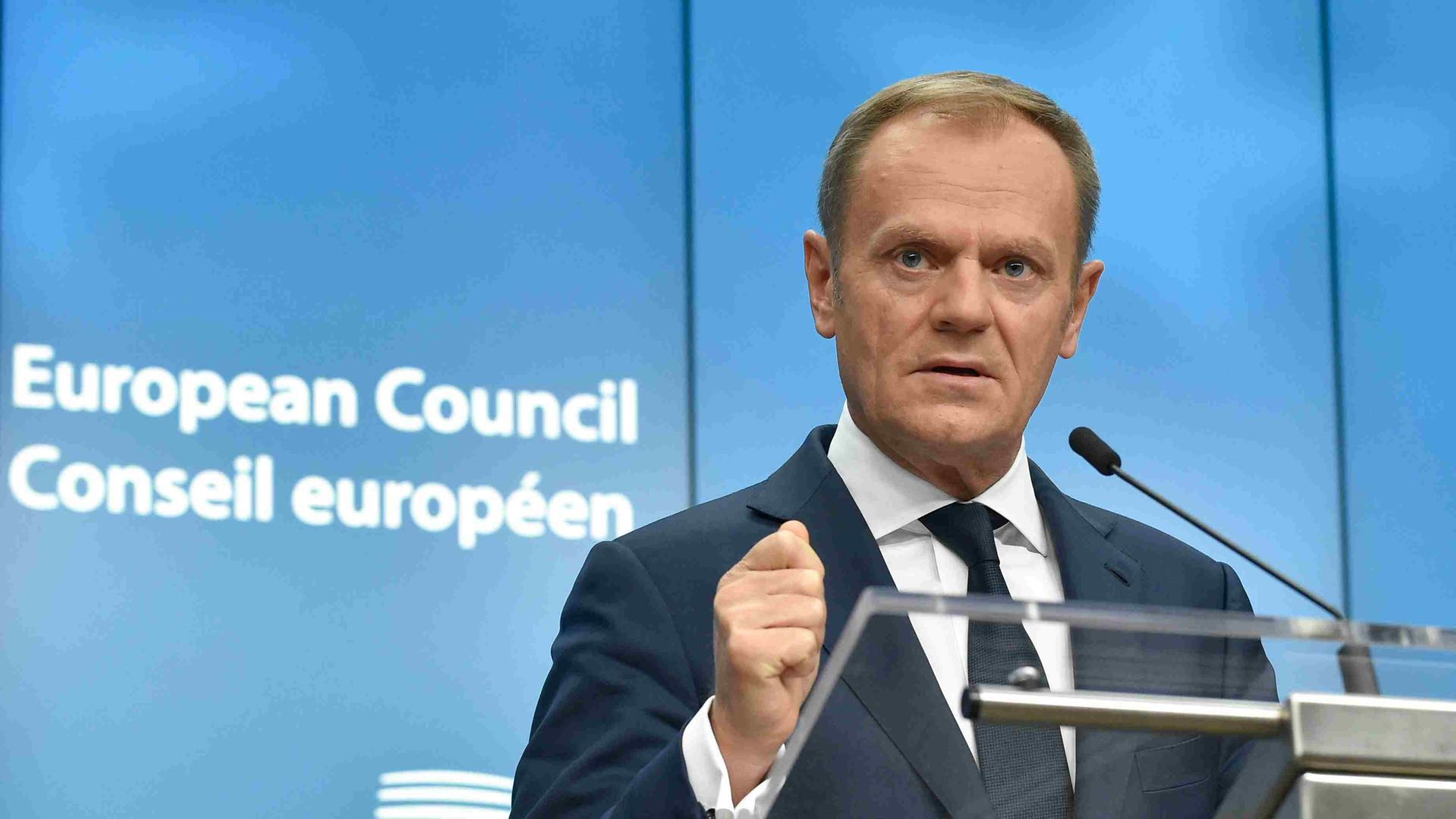
The implementation of a migration deal will be difficult, the head of the European Council, Donald Tusk, told a news conference after two days of talks wrapped up in Brussels.
After marathon talks, the leaders have reached
a comprise deal on migration and agreed to establish voluntary screening centers on European soil, to ease the burden on some countries.
"As regards our deal on migration, it is far too early to talk about a success," said Tusk after EU leaders clinched an agreement in bitter all-night talks.
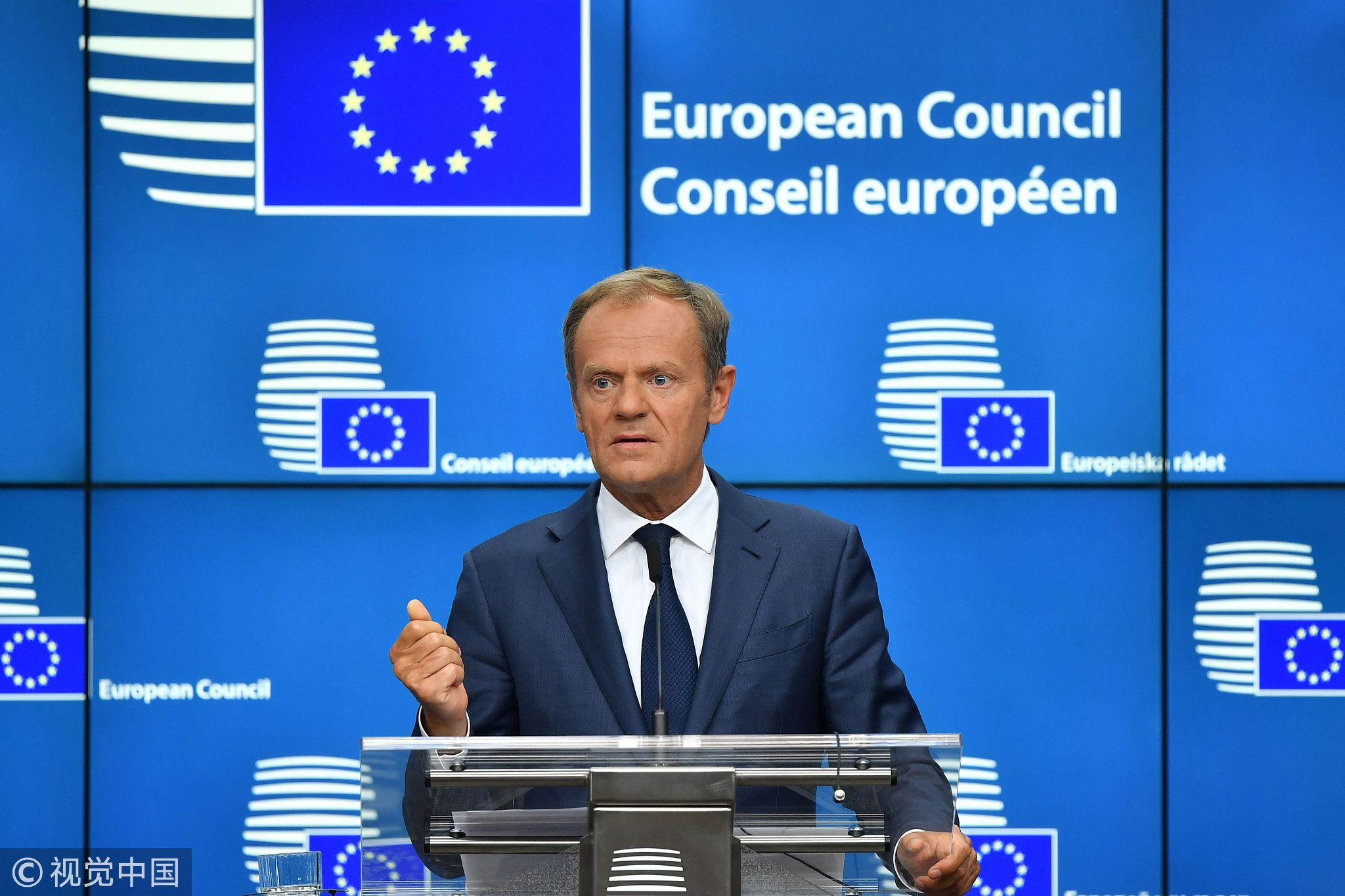
European Council President Donald Tusk gives a joint press conference with President of the European Commission and Bulgaria's Prime Minister on the sidelines of a European Union leaders' summit, without Britain, to discuss Brexit and eurozone reforms, June 29, 2018, at the Europa building in Brussels. /VCG Photo
European Council President Donald Tusk gives a joint press conference with President of the European Commission and Bulgaria's Prime Minister on the sidelines of a European Union leaders' summit, without Britain, to discuss Brexit and eurozone reforms, June 29, 2018, at the Europa building in Brussels. /VCG Photo
"We have managed to reach an agreement in the European Council. But this is in fact the easiest part of the task, compared to what awaits us on the ground, when we start implementing it," he added.
During the press conference, Tusk has reiterated that all measures on new agreed migration centers, including relocation and resettlement, will be “on voluntary basis.”
Greece, Spain agree to take back registered migrants from Germany
Germany said Friday it had sealed deals with Greece and Spain to take back migrants registered in those countries, in a step toward defusing a row in Chancellor Angela Merkel's fragile ruling coalition.
"Greece and Spain are prepared to accept asylum seekers who are in future identified by German authorities at the German-Austrian border and who have a Eurodac registration in those countries," the German government said, referring to the EU asylum fingerprint database.
However, Italy's prime minister said a migration deal reached in the early hours of Friday by EU leaders did not foresee that Italy will take back migrants who moved to Germany, in a remark that may not please Merkel.
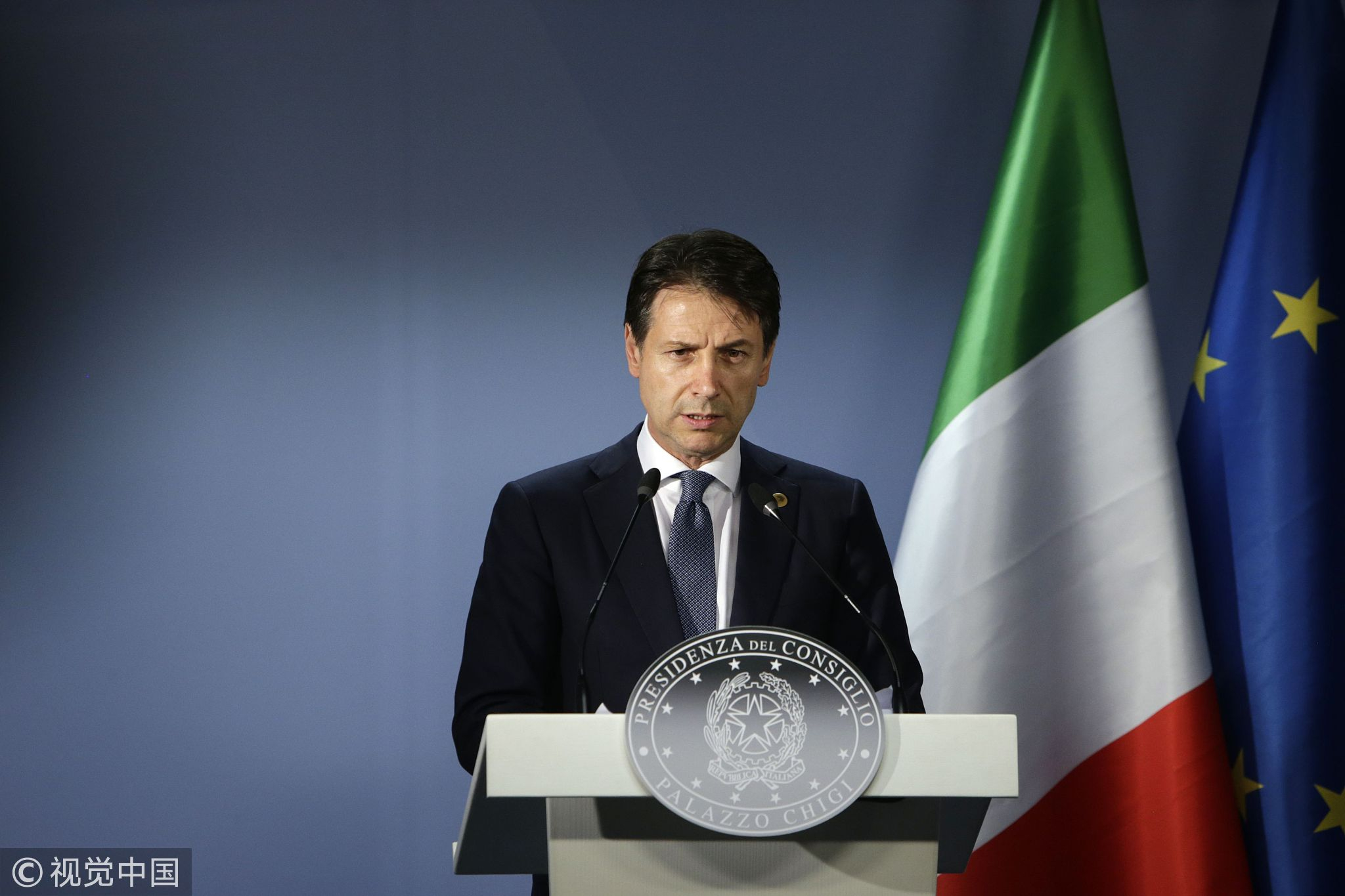
Italian Prime Minister Giuseppe Conte gives a press conference on the sidelines of a European Union leaders' summit, without Britain, to discuss Brexit and eurozone reforms, June 29, 2018, at the Europa building in Brussels. /VCG Photo
Italian Prime Minister Giuseppe Conte gives a press conference on the sidelines of a European Union leaders' summit, without Britain, to discuss Brexit and eurozone reforms, June 29, 2018, at the Europa building in Brussels. /VCG Photo
"The accord does not foresee that Italy takes migrants from Germany," Giuseppe Conte told a news conference after a two-day EU summit in Brussels.
"I did not undersign any specific agreement with Merkel" on taking back migrants, he added.
Merkel: Closer to common asylum system
Merkel defended the migration deal clinched at an EU summit on Friday, describing it as a decisive step in the direction of a common European asylum policy.
"What we achieved here together is perhaps more than I had expected," Merkel told reporters at the end of the summit.
"We are not at the end of the road. I always said that we would never be able to agree a common European asylum system here. But the more we agree among ourselves, the closer we get to a possible European solution. I'm convinced of that."
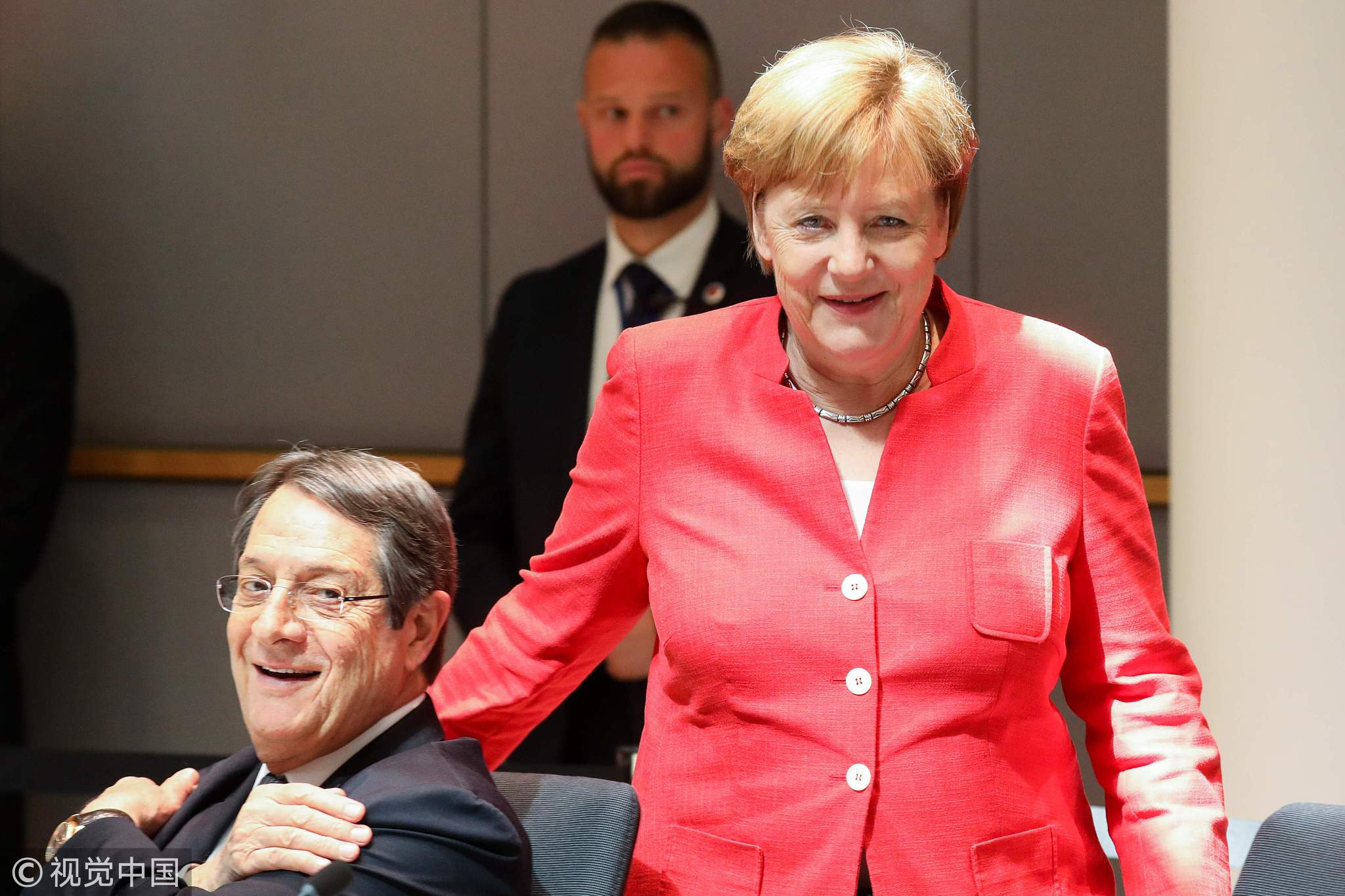
Cyprus' President Nicos Anastasiades (L) speaks with Germany's Chancellor Angela Merkel during the last day of the European Union leaders' summit, without Britain, to discuss Brexit and eurozone reforms, June 29, 2018, at the Europa building in Brussels. /VCG Photo
Cyprus' President Nicos Anastasiades (L) speaks with Germany's Chancellor Angela Merkel during the last day of the European Union leaders' summit, without Britain, to discuss Brexit and eurozone reforms, June 29, 2018, at the Europa building in Brussels. /VCG Photo
She described the deal as a "right step in the right direction" given what she said were widely divergent stances on migration within the EU.
Merkel said she would inform her coalition partners, including her hardline Bavarian allies, about the details of the deal on Friday evening.
She confirmed that she had clinched bilateral agreements with Spain and Greece to handle migrants who make their way from southern Europe north to Germany, but did not have a similar deal with Italy.
Macron: Pressures will continue
French President Emmanuel Macron praised a deal on migration, calling it a significant step forward in efforts to resolve the influx of migrants to the continent from Africa and the Middle East.
"We made a choice of cooperation," Macron told a news conference after two days of talks wrapped up in Brussels.
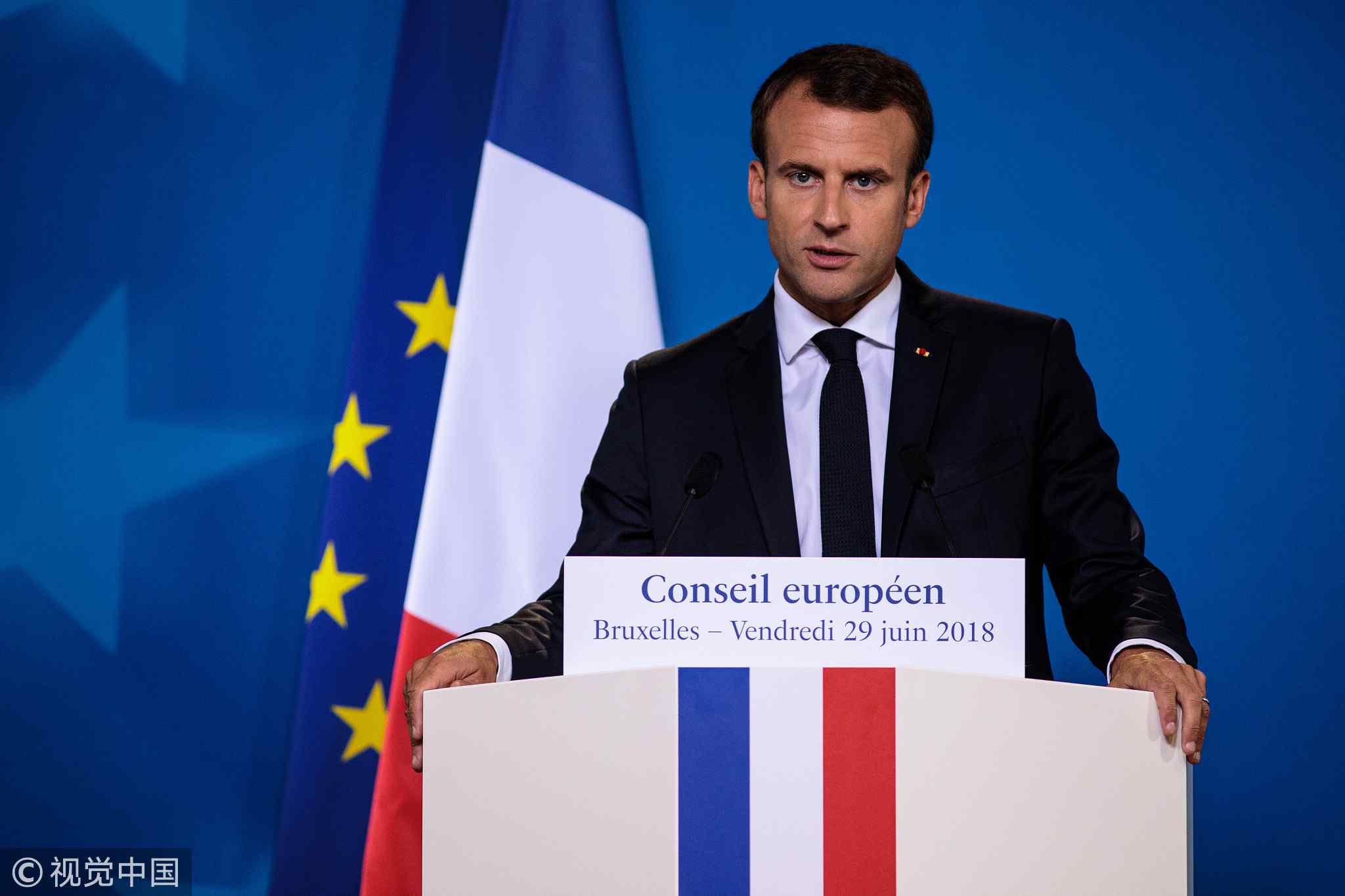
French President Emmanuel Macron holds a press conference on the final day of the European Council leaders' summit, June 29, 2018, in Brussels, Belgium. /VCG Photo
French President Emmanuel Macron holds a press conference on the final day of the European Council leaders' summit, June 29, 2018, in Brussels, Belgium. /VCG Photo
"People thought it was impossible to deliver an agreement on migration. But we did, and we found the right balance between responsibility and solidarity."
The French president acknowledged migration pressures were likely to continue, but said it was essential not to give into emotion on the issue and stick to principles.
Source(s): AFP
,Reuters






